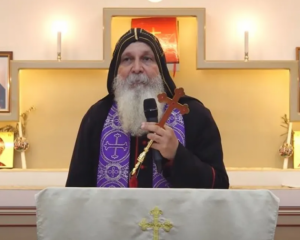The missiles have been in place "for some time," according to Izvestia's source, a high-level Defence Ministry official it did not name. Another unnamed military source said they were deployed about 18 months ago.
The Izvestia report followed a story in German newspaper Bild on Saturday that said secret satellite imagery showed Iskander-M missiles stationed near the Polish border.
The reports caused alarm in Poland and the Baltic states, which are wary of Russian military movements after decades of dominance by the Soviet Union. Their alarm was aggravated by tension between Russia and the West over Ukraine.
"We have followed these events for quite some time, and this is not a surprise for us," Artis Pabriks, defence minister of nearby Latvia, told Reuters.
But he added: "It creates unnecessary political tension and suspicions and reduces mutual trust because we don't see reason why Russians would need such weapons here.
"I think it's just to show who is the boss in the region."
Russia said in 2011 it might put Iskanders in Kaliningrad, its westernmost region, as part of a response to an anti-missile shield the United States is building in Europe with help from NATO nations. There have been media reports since of plans to deploy the missiles but no confirmation it had happened.
Poland's Foreign Ministry said it had received no official information from Russia and called the news "worrying". It said it expected consultations on the issue among NATO and European Union partners.
MISSILE SHIELD DISPUTE
Asked about the reports on Monday, Defence Ministry spokesman Igor Konashenkov told Russian news agencies Iskanders had been deployed in western Russia but did not specify where.
Konashenkov said the deployments did not violate international treaties. He could not immediately be reached for comment by Reuters.
Nuclear-armed Russia says it fears the Western anti-missile shield in Europe is meant to undermine its security, upsetting the post-Cold War strategic balance. Efforts to turn years of confrontation over the issue into cooperation have failed.
"We are worried about militarisation of Kaliningrad region and modernisation of its weaponry," Juozas Olekas, Lithuania's defence minister, said in an e-mail to Reuters. "We have repeatedly brought this issue up in various multilateral forums."
In addition to threatening to station Iskanders in Kaliningrad, then-President Dmitry Medvedev said in 2011 Russia could deploy weapons in its west that would be able to destroy components of the anti-missile shield.
An interceptor installation is to be deployed in Poland by 2018 as part of the shield, which is to be completed after 2020 and which the United States says is meant to protect against potential threats from the Middle East.
The Iskander-M has a range of about 400 km (250 miles), which means missiles based in Kaliningrad could reach deep into Poland, Lithuania or Latvia.
"At the moment I can't imagine Russia shooting into a NATO country ... If this missile upgrade has already taken place, it's just a show-off, and is intended to scare," a senior Lithuanian official told Reuters, speaking on condition of anonymity.
Russian President Vladimir Putin has cited the missile shield as one of the reasons Russia must maintain a strong military and has pledged to spend 23 trillion roubles ($700 billion) by 2020 to upgrade defence.
Already strained by disagreements on issues from energy to human rights since Putin returned to the Kremlin last year, relations between Russia and the West have been worsened recently by the situation in Ukraine, whose government last month ditched preparations for a trade pact with the European Union in favour of closer ties with Moscow, its former master.












